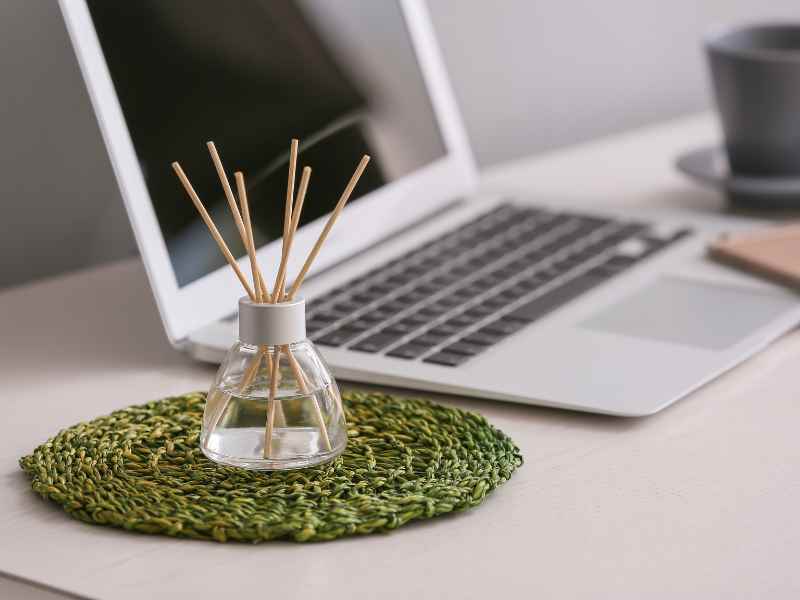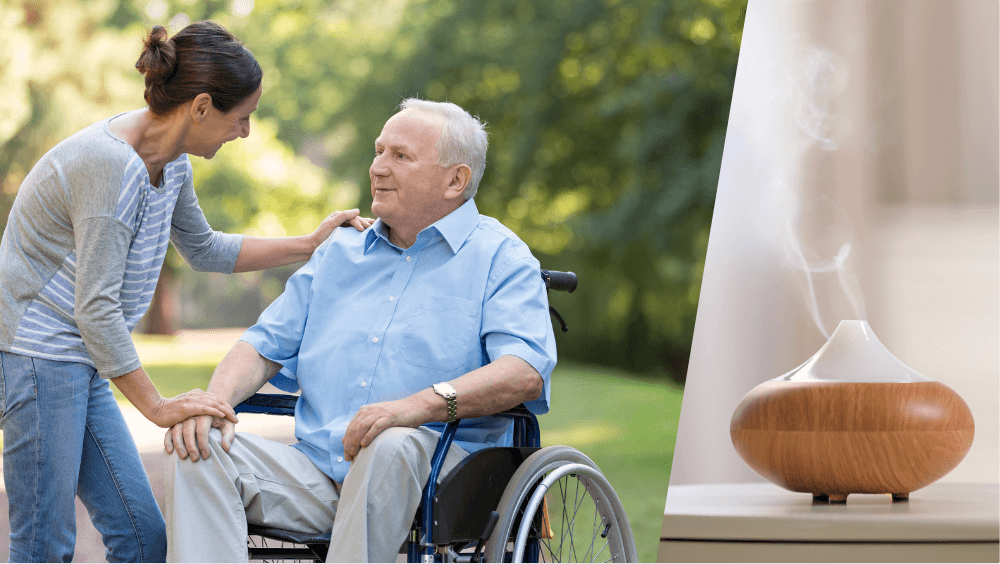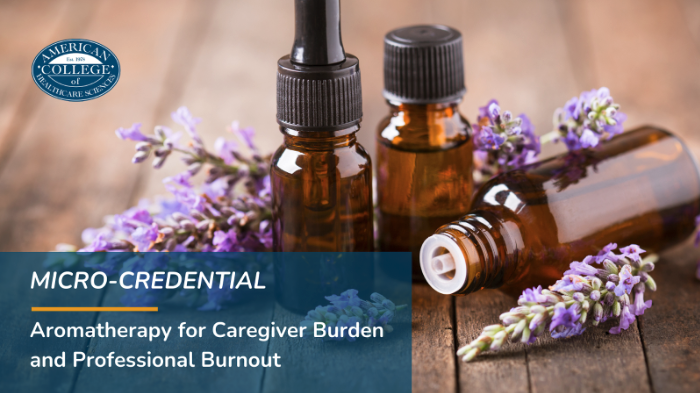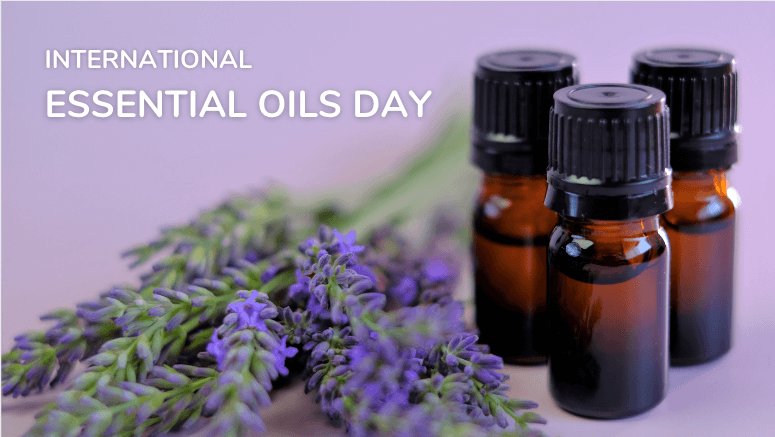Reviewed by Amanda Lattin, ACHS Dean of Aromatherapy
What is Professional Burnout?
Professional burnout is a state of physical, emotional, and mental exhaustion caused by prolonged and excessive stress in the workplace. Burnout can affect anyone, regardless of their profession. Factors such as high workloads, long hours, lack of control, insufficient support, an imbalance between work and personal life, and even personality type can affect your level of burnout risk. That can explain why if two people are performing the same job, one might have burnout while the other does not.
Regardless of the cause behind it, job burnout can greatly affect your physical and mental health. Studies have shown it is more relevant than ever after the COVID-19 pandemic, which resulted in major shifts in occupatuional structure for many people.
Signs and Symptoms of Burnout
Professional burnout manifests in many ways. Recognizing the signs of burnout early is crucial for addressing it effectively. Common symptoms include:
- Chronic fatigue
- Insomnia
- Forgetfulness and concentration difficulties
- Physical symptoms like headaches and stomach issues
- Increased irritability
- Loss of interest in work
- Feelings of hopelessness
Burnout can affect both your professional life and your personal well-being. If left unaddressed, it can potentially lead to serious health issues such as depression, anxiety, cardiovascular diseases, and a weakened immune system. It can also strain relationships and decrease overall life satisfaction. Fortunately, there is a holistic method for managing burnout before it gets out of hand.
Aromatherapy for Burnout
Aromatherapy is the use of essential oils extracted from plants for therapeutic purposes. These oils can be inhaled or applied to the skin to promote physical and psychological well-being. For centuries, aromatherapy has been used to manage overall health.
Essential oils contain volatile compounds that can interact with the brain's limbic system, which is responsible for emotions, memories, and arousal. When inhaled, these compounds can influence emotional responses, helping to support stress and maintain relaxation.
Key Essential Oils for Burnout
- Lavender Lavandula angustifolia: Known for its calming and soothing properties, lavender oil can help support stress and anxiety and promote quality sleep.
- Bergamot Citrus aurantium var. bergamia : This citrusy oil can uplift the mood and support stress.
- Peppermint Mentha x piperita: Peppermint oil can enhance alertness and focus, helping to combat mental fatigue.
- Rosemary Rosmarinus officinalis: Often used to support cognitive function, rosemary oil can help maintain concentration and mental clarity.
- Chamomile Chamaemelum nobile: Chamomile oil is excellent for promoting relaxation and supporting a positive mood.
How to Incorporate Aromatherapy
- Diffusers: Use an essential oil diffuser to disperse calming scents throughout your home.
- Topical Application: Dilute essential oils with a carrier oil (such as sweet almond or jojoba) and apply them to your skin, focusing on areas like the wrists, temples, and neck.
- Baths: Add a few drops of essential oil to your bath to create a relaxing and aromatic experience.
- Inhalation: Simply inhale the scent directly from the bottle or use an aromatherapy inhaler.
Adding Aromatherapy to Your Routine
To effectively combat burnout, consider integrating aromatherapy into your daily routine in these ways:
- Morning Ritual: Start your day with invigorating scents like peppermint or rosemary to boost alertness and focus.
- Work Environment: Keep a diffuser at your desk with oils like lavender or bergamot to maintain a calm and positive atmosphere.
- Evening Wind-Down: Use relaxing oils like chamomile or lavender in your evening routine to unwind and prepare for a restful night's sleep.
ACHS Micro-Credential Explores Aromatherapy for Professional Burnout
In February of 2024, ACHS launched the innovative micro-credential program Aromatherapy for Caregiver Burden and Professional Burnout. This program explores the key concepts and research that drive the current definitions of caregiver burden and professional burnout. Participants explore the latest information on professional burnout and learn how aromatherapy can support this growing phenomenon. Read more about this micro-credential here.
Professional burnout is a timely issue that can be managed with a holistic approach. Aromatherapy offers a natural, effective way to alleviate the symptoms of burnout and promote overall well-being. By incorporating essential oils into your daily routine, you can embrace a more balanced life and enhance your professional performance and personal happiness.
Want to learn more about aromatherapy courses at ACHS? Browse our aromatherapy programs.
This content is for educational purposes only and is not intended to be medical advice. It is not intended to treat, diagnose, cure, or prevent disease. This article has not been reviewed by the FDA. Always consult with your primary care physician or naturopathic doctor before making any significant changes to your health and wellness routine.
Sources:
- Mayo Clinic. (2023, November 30). Job burnout: How to spot it and take action. Mayo Clinic. Retrieved July 26, 2024, from https://www.mayoclinic.org/healthy-lifestyle/adult-health/in-depth/burnout/art-20046642
- Edú-Valsania, S., Laguía, A., & Moriano, J. A. (2022). Burnout: A Review of Theory and Measurement. International journal of environmental research and public health, 19(3), 1780. https://doi.org/10.3390/ijerph19031780
- Maslach, C., & Leiter, M. P. (2016). Understanding the burnout experience: recent research and its implications for psychiatry. World psychiatry : official journal of the World Psychiatric Association (WPA), 15(2), 103–111. https://doi.org/10.1002/wps.20311
- Moyer, M. W. (2023, June 22). Work Burnout: How to Spot Symptoms and What to Do. The New York Times. Retrieved July 26, 2024, from https://www.nytimes.com/2022/02/15/well/live/burnout-work-stress.html






